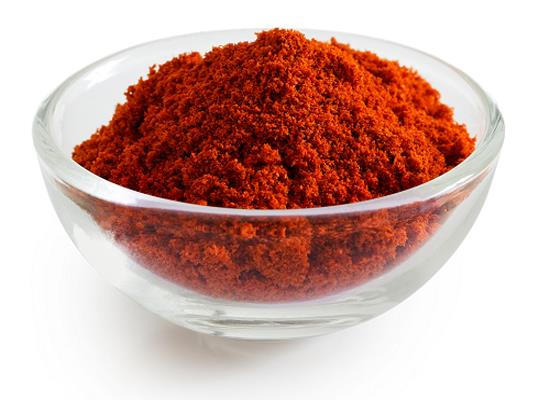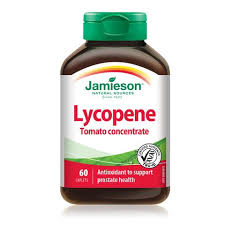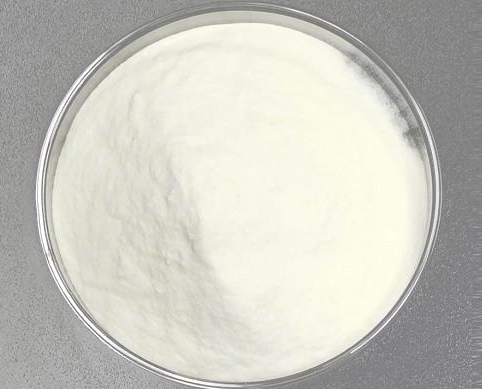Lycopene: A Potent Antioxidant Compound with Anti-inflammatory Properties
General Description
Lycopene is a phytochemical mainly found in tomato and tomato-based products. It is a tetraterpene compound with eight isoprene units and 11 double linear bonds. Lycopene is a non-pro-vitamin A carotenoid. However, it is mentioned as an intermediate of carotenoid synthesis in plants. Some fruits’ and vegetables’ red and orange coloration is attributed to this liposoluble pigment. Despite this, it is found in some non-red or non-orange plants, such as asparagus and parsley. It should be noted that lycopene cannot be synthesized in the human body. Therefore, it must be consumed in a daily diet. The absorbed lycopene is mostly stored in the liver, adrenals, and prostate. Moreover, it can be found in a lower concentration in other body parts (e.g., brain and skin). Lycopene bioavailability can be decreased by ageing and some pathological states, such as cardiovascular diseases (CVDs)[1].
Chemical property
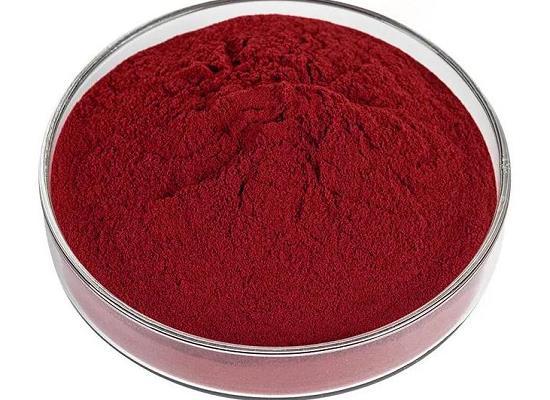
Lycopene is one pigment in a large family of plant pigments known as carotenoids. Carotenoids produce colors ranging from the yellow color of squash, to the orange color of pumpkins, to the red color of tomatoes. Carotenoids also contribute to some plant food aromas. Some carotenoids also possess provitamin A activity and have shown potent antioxidant activity. To date, more than 700 carotenoids have been identified. There are two primary types of carotenoids: hydrocarbon carotenoids and xanthophylls. Hydrocarbon carotenoids, such as lycopene, are composed entirely of hydrogen and carbon. In contrast, xanthophylls, such as lutein, contain oxygen, carbon, and hydrogen. Some hydrocarbon carotenoids, such as β-carotene and α-carotene, can be enzymatically cleaved to form vitamin A. Lycopene lacks provitamin A activity because of the absence of a terminal beta ionone ring. Carotenoids typically contain 40 carbons. Apo-carotenoids contain less than 40 carbons. The prefix apo is used to identify carotenoids that have been shortened in length by one or more carbons. Regardless of the number of carbons, all carotenoids possess an isoprenoid backbone[2].
The chemical formula for lycopene is C40H56. The 11 conjugated and 2 unconjugated double bonds in lycopene allow for extensive isomerization, resulting in 1056 theoretical cis-trans configurations. However, only a few isomers are found in nature, with the all-trans configuration of lycopene being the most common isomer in foods. The thermodynamic stabilities of the common lycopene isomers have been determined relative to the all-trans isomer. The 5-cis isomer was the most stable, followed by all-trans, 9-cis, 13-cis, 15-cis, 7-cis, and 11-cis. The lycopene isomers found in human blood plasma, breastmilk, and human tissues are mainly of the cis-isomer type. The color of lycopene is directly related to its isomeric form. The all-trans isomer and most other isomers of lycopene are red, whereas tetra-cis-lycopene possesses an orange hue.
Antioxidant
Lycopene is a well-known antioxidant. It can protect DNA, proteins, and lipids against oxidation. In addition, “lycopene can act on other free radicals such as hydrogen peroxide, nitrogen dioxide and hydroxyl radicals”.
Oxidative stress, as well as inflammation, is essential in acute pancreatitis (AP) pathogenesis. Lycopene (50 mg/kg) significantly prevented AP by a substantial decrease in MPO activity, TNF-α and down-regulating iNOS gene expression along with decreasing NO level, increasing pancreatic glutathione (GSH), decreasing serum α-amylase and lipase functions in Wistar rats. Fluorosis can induce oxidative stress by activating the MAPK cascade, which can cause cell apoptosis. The combination of vitamin E and lycopene prevented fluoride-induced spermatogenic cell apoptosis in rats. Both decreased the expression of rescued clustering and toxicity induced by fluorosis. In addition, it decreased the improved JNK and phosphorylation of the ERK[3].
Another study showed the lycopene role via down-regulating the expression rate of the proprotein convertase subtilisin/kexin type-9 (PCSK-9) by inhibiting hepatocyte nuclear factor-1α, improving LDL-receptor and sterol regulatory element-binding protein-2. Lycopene also reduces Apo-CIII when assembled with lipoprotein lipase (LPL) bonding. Likewise, lycopene improved LPS-induced oxidative stress by increasing total antioxidant and HDL-related PON-1 function, as well as downregulating the plasma level and expression of inflammatory mediators.
Interestingly, lycopene intake (50 mg/kg BW/day) improved d-galactose in CD-1 male mice having cognitive defects. It also improved histopathological injury and repaired brain-derived neurotrophic factor (BDNF) amounts in mice’s hippocampal area. Lycopene considerably increased antioxidant enzymatic activity and decreased inflammatory cytokines in d-galactose-administrated mice serum. Furthermore, lycopene supplementation improves mRNA expressions of the NQO-1 and HO-1 as antioxidant enzymes. It was also found to downregulate inflammatory cytokines (i.e., TNF-α and IL-1β) in the hippocampus of the mice. Lycopene noticeably improves the GFAP and Iba-1 expression as the glial cells’ inflammatory makers. Lycopene decreased neuronal oxidative damage by activating Nrf2, as well as by inactivating NF-κB translocation in the H2O2-related SH-SY5Y cell model.
References:
[1] USMAN MIR KHAN. Lycopene: Food Sources, Biological Activities, and Human Health Benefits.[J]. Oxidative Medicine and Cellular Longevity, 2021. DOI:10.1155/2021/2713511.[2] ERICA N STORY. An update on the health effects of tomato lycopene.[J]. Annual review of food science and technology, 2010, 1. DOI:10.1146/annurev.food.102308.124120.
[3] MUHAMMAD IMRAN. Lycopene as a Natural Antioxidant Used to Prevent Human Health Disorders.[J]. ACS Applied Nano Materials, 2020. DOI:10.3390/antiox9080706.
You may like
Related articles And Qustion
Lastest Price from Lycopene manufacturers
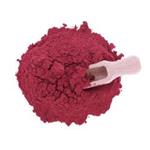
US $1200.00-1100.00/ton2025-10-17
- CAS:
- 502-65-8
- Min. Order:
- 1ton
- Purity:
- 99%
- Supply Ability:
- 1000T/M
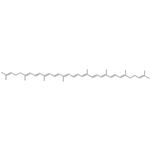
US $0.00-0.00/kg2025-09-05
- CAS:
- 502-65-8
- Min. Order:
- 1kg
- Purity:
- 98%
- Supply Ability:
- 1


